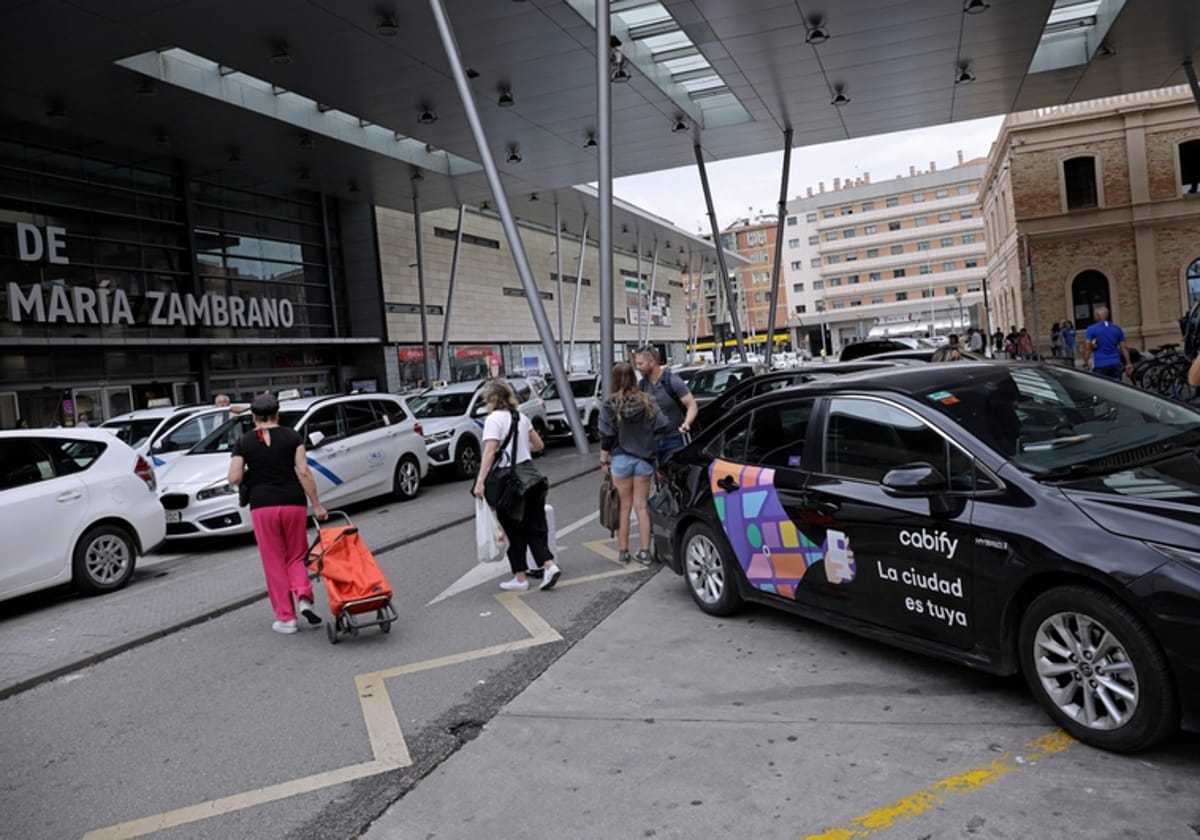

Secciones
Servicios
Destacamos

Francisco Jiménez
Malaga
Monday, 12 June 2023, 13:01
Private hire vehicles, known in Spain as VTCs, registered on the western Costa del Sol now outnumber taxis.
The rise in popularity of ride-hailing apps such as Cabify, Bolt and Uber is behind the surge in private hire vehicle registrations, and continues to apply pressure onto taxi drivers.
The rivalry between VTCs and taxis is expected to get even more fiery following a ruling by the Court of Justice of the EU (CJEU) on Thursday, 8 June, which rejected a cap on the number of VTCs in Spain, a measure which was in force across the country to protect taxis from competition by establishing a limit of one private hire vehicle for every 30 taxis.
According to the latest Ministry of Transport statistics, there are currently 2,427 registrations of VTCs in Malaga province, a figure which, when compared with the 2,740 taxis in total in operation, gives a ratio of 1 VTC for every 1.1 taxis. This is the lowest ratio in the country, ahead of even Madrid (1/1.8), Barcelona (1/4), Seville (1/5) and other large capitals such as Valencia (1/12) and Zaragoza (1/11).
However looking at the western Costa del Sol specifically, VTCs outnumber taxis, where there are just 2,250 taxis licensed to operate between Malaga city and Marbella. And the competition can be even greater, since the other 15,055 active private hire licences out side Andalucía also have the option of working in other regions as long as these services do not exceed 20% of the turnover per quarter.
Malaga's VTC licences have continued to increase in recent months, despite the cap that has just been overthrown. The constant approval of registrations is happening through the courts, since these are authorisations that were processed under the protection of the liberalisation of the sector that was in force between 2009 and 2015.
The taxi sector does not hide its "concern" about the increase in competition. It blames the Junta de Andalucía directly following a decree approved in September 2022, which allows VTCs to continue operating routes that start and finish within the same municipal boundary, rather than being only allowed to pick up longer distance fares.
But even more worrying is what could happen in the future. "These VTCs with their apps are only interested in making money. If no one regulates them, they will become popular by charging prices below cost in order to take over the market and, once they finish with the taxi and rule the streets of Malaga, their prices will double or triple as they do today when it rains, there is a concert or a night with high demand," president of the Unified Association of Self-Employed Taxi Drivers of Malaga (Aumat), Miguel Angel Martin, said.
The president of the regional employers' association VTC Andalucía, Pablo García, said the new authorisations that are currently coming in are from rulings that are still pending. He said he advocates for "a balanced coexistence where taxis and VTCs can work in the field of urban and interurban transport, generating a higher quality of service and always respecting that taxis have their three ways of picking up customers (at a taxi rank, freehand and with pre-contracting) and VTCs only with pre-contracting".
To guarantee this balance, in February 2021 the Andalusian government approved a decree for the modernisation and flexibility of taxis which, among other measures, considers the possibility of hiring the service at a fixed price so that the customer knows in advance how much the fare is going to cost (the same as Uber, Cabify or Bolt) or the possibility of sharing taxis on journeys to and from busy points such as airports, stations or fairgrounds, although in order to be able to apply individual payment per seat, this will first have to be established in the bylaws of each municipality.
Andalusian decree to regulate VTCs
On 1 October in 2022 the regional decree regulating VTCs came into force, a fundamental condition for them to continue operating urban routes within Andalusian towns and cities. After the expiry of a four-year moratorium granted by the central government in 2018, regional legislation was required or cars would only be able to cover routes between different municipalities.
They have continued to operate since then, but the decree established a series of restrictions to try to ensure a coexistence with taxis, such as the prohibition of approaching areas of high passenger demand such as airports, stations, hotels or shopping centres without being pre-contracted; or the elimination of geolocation, which allows the client to know the location of the vehicle before hiring it.
Publicidad
Publicidad
Publicidad
Publicidad
Esta funcionalidad es exclusiva para registrados.
Reporta un error en esta noticia

Debido a un error no hemos podido dar de alta tu suscripción.
Por favor, ponte en contacto con Atención al Cliente.

¡Bienvenido a SURINENGLISH!

Tu suscripción con Google se ha realizado correctamente, pero ya tenías otra suscripción activa en SURINENGLISH.
Déjanos tus datos y nos pondremos en contacto contigo para analizar tu caso

¡Tu suscripción con Google se ha realizado correctamente!
La compra se ha asociado al siguiente email
Comentar es una ventaja exclusiva para registrados
¿Ya eres registrado?
Inicia sesiónNecesitas ser suscriptor para poder votar.